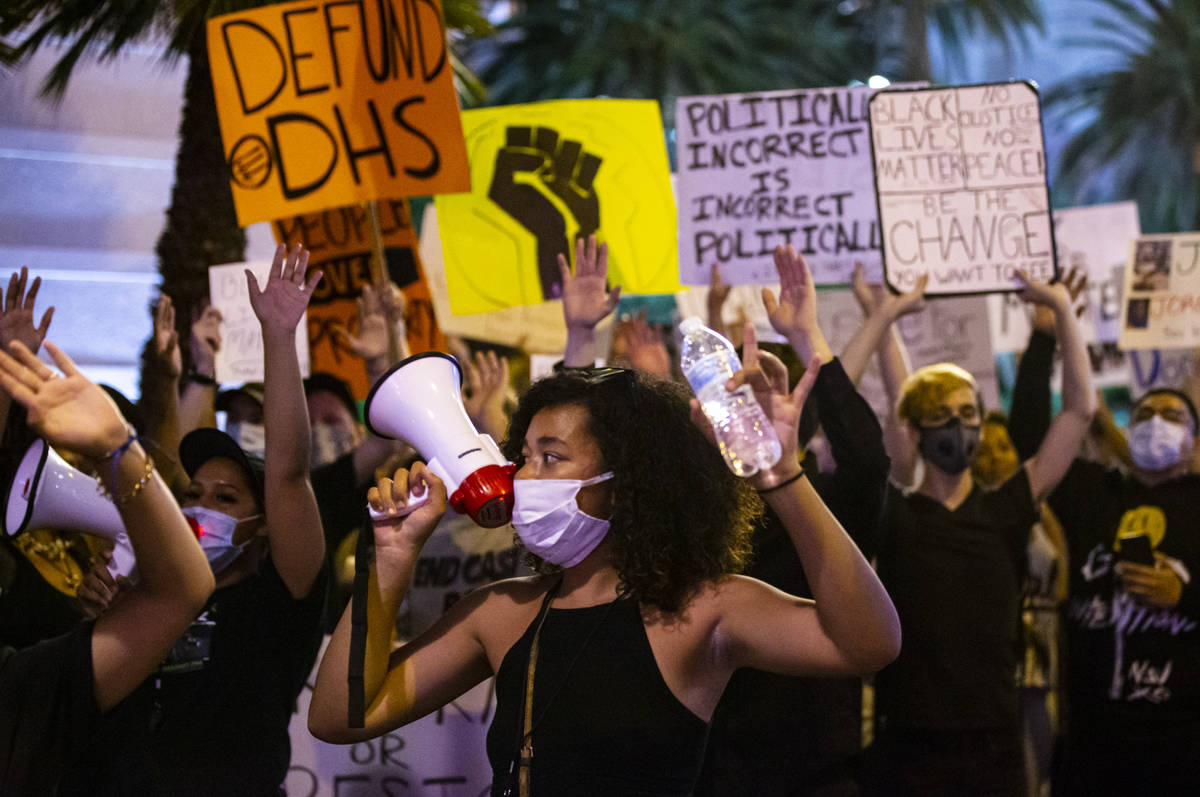VICTOR JOECKS: The many, contradictory meanings of ‘Black Lives Matter’
You can’t have a fruitful discussion when terms mean different things to different people. Consider Black Lives Matter.
That phrase has dominated the news since the tragic death of George Floyd, which triggered BLM rallies throughout the country. Polling shows a majority of the public supports the BLM movement.
President Donald Trump isn’t among them. Earlier this month, he attacked Black Lives Matter as “a Marxist group.” In Nevada, the Douglas County sheriff objected to a local library passing a resolution supporting BLM.
The fundamental disagreement here involves definitions not policy. The phrase “Black Lives Matter” has at least three different meanings.
Definition A is the literal meaning. Black people matter. That’s obviously true. People should be judged not by the color of their skin but by the content of their character.
There’s good news on this front. America has made tremendous progress in the past 60 years. Individual instances of racism, such as the apparent murder of Ahmaud Arbery by a man who uttered a racial slur after the shooting, must be condemned and taken seriously. But to claim those events reflect society at large ignores this progress.
Definition B is shorthand for believing police specifically and society generally endanger black lives. BLM “is trying to highlight that there is demonstrable evidence that black lives matter less than white lives to the criminal justice system (and to American government as a whole),” a HuffPost columnist wrote. This is why some argue that saying “All Lives Matter” is racist. They contend it diminishes the ongoing struggles of Black Americans.
But there’s a conflict between Definition A and B. Under Definition A, Mr. Floyd’s death is worthy of protest, but so is the death of Mekhi James, the African American 3-year-old who was shot and killed on Father’s Day weekend in Chicago. So is the death of Secoriea Turner, the 8-year-old girl in Atlanta who was shot and killed by a BLM protester upset about the shooting of Rayshard Brooks. But the loudest BLM supporters don’t want to talk about those Black lives. “They say Black lives matter,” Secoriea’s father said during a news conference. “You killed your own.”
Definition C means support for the Black Lives Matter organization. Co-founder Patrissa Cullors called herself and fellow co-founder Alicia Garza “trained Marxists,” the New York Post reported. BLM supports defunding the police. It also wants to “disrupt the Western-prescribed nuclear family structure,” according to the group’s website.
No wonder Mr. Trump and others are leery of Black Lives Matter. So is most of the American public — using Definition C.
If you’re trying to solve a problem, this confusion is counterproductive. People who agree with Definition A may be turned off by Definition B. Those who are open to identifying and removing abusive police officers are likely opposed to Definition C.
This conflict is playing out on the streets, too. Tuesday night in Chicago, a group of African Americans chased Black Lives Matter protesters away from their neighborhood. The locals didn’t want outsiders to give their community a “black eye,” Chicago’s Fox affiliate reported. They had good reason to be worried. BLM Chicago, which wants to abolish the city’s police, celebrated the looting of its downtown last weekend.
In some ways, Black Lives Matter now functions as a Trojan horse for radical policy. Instead of saying they want to defund the police, politicians can say they support Black Lives Matter. When asked about the many problems abolishing the police would create, they can retreat to the safety of Definition A.
Black Lives Matter generates passion. The reason for much of the controversy over the group, however, is a result of this bait and switch.
Contact Victor Joecks at vjoecks@reviewjournal.com or 702-383-4698.























